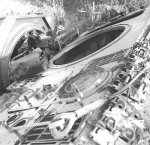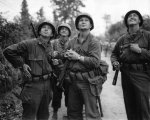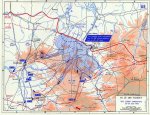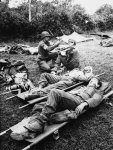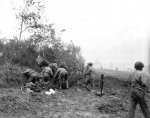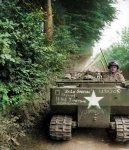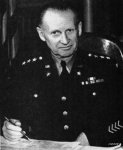July 25, 1944: It’s Tuesday - today is D+49, marking 7 weeks since the D-Day Invasion at Normandy and the beginning of the liberation of Europe.
Today marks the beginning of two operations; Operation Cobra (American) and Operation Spring (British).
Despite the poor weather (and the ‘friendly fire’ bombings of the day before), new Allied air raids prepare the ground for the offensive: 1,500 B-17 and B-25 bombers drop nearly 3,300 tons of bombs between Montreuil and Hebecrevon in the northwest of Saint-Lo. But once again, due to the poor atmospheric conditions and the proximity of the American forces, hundreds more are wounded or killed by the bombardments. After the bombing runs, the Panzer Lehr then comes under massed artillery fire of approximately 1,000 pieces of artillery of different calibers. The bombardments are disastrous for the German forces, which lose a tremendous amount of soldiers and vehicles during the air raid: after the bombardment the Panzer Lehr division has only 7 operational tanks left in this sector. Before the Americans even launch the ground attack (comprised of two armored divisions (238 Sherman tanks) and four infantry divisions), the Germans lose not only their armored support, but also nearly half their soldiers are killed by the bombardments.
The Americans send six divisions (over 140,000 troops) to attack between Montreuil and Hebecrevon, which strike in the following directions (from west to east): the 9th Infantry division, on the west side of the offensive, moves south towards Montreuil and must push back the counterattacks of the 2nd and 17th SS Panzer Division. The 1st infantry division attacks towards Marigny, keeping the pressure on the German paratroopers. The 3rd Armored division moves towards Cerisy-la-Salle, the 4th Infantry progresses towards Canisy. The 2nd Armoured division attacks Saint-Gilles while the troops of the 30th Infantry on the eastern side move to the south of Saint-Lo, attacking the 352nd Infantry division and the 2nd Parachutist Regiment. By the evening of July 25, the front line has moved by only 1.5 miles to the south. The American generals, and in particular Bradley, worry about this lack of progress but the German prisoners imply that they are still shocked by the scale of the bombardments. The Americans decide to ‘go all out’ in the bombardments the next day.
Above France, in support of Operation Cobra, US 9th Air Force opens air attacks against German ground positions around St Lo with eight fighter groups. Immediately following 9th ** fighters, US 8th Air Force attacks German ground positions around St Lo with 1,503 bombers. US 9th Air Force then attacks German ground positions around St Lo with seven fighter groups followed by attacks by 580 bombers.
To the east of the Americans, the British launch Operation Spring, to the south of Caen. This offensive, mainly carried out by the Canadian Black Watch Regiment, intends to keep the Germans in contact with the British instead of sending reinforcements to fight the American offensive. This attack, which does not make much progress on the front, takes on extremely heavy in losses - the Germans dug themselves in after Operation Goodwood and the Canadians are punished by units firmly entrenched in their positions. The British losses are terrible: nearly 1,500 casualties. However, Operation Spring is a success in that the Germans choose not to send reinforcements to the west.
Seven weeks after the landing on D-Day, the combination of Operations Cobra and Spring are about to change the face of the western front…
In the skies above Germany, US 15th Air Force attacks Linz, Villach, and other targets with 420 bombers. RAF Bomber Command sends 550 aircraft to attack Stuttgart overnight (12 lost), 135 aircraft to attack Wanne-Eickel overnight, 21 aircraft to attack Berlin overnight, and 15 aircraft to attack Mannheim overnight.
On the eastern front, Soviet forces penetrate Lvov and partially surround it. Soviet 2nd Shock Army attacking around Narva, German III SS Panzer Korps evacuate. Soviet 2nd Baltic Front pushing toward Daugavpils. Soviet 1st Belorussian Front attacking around Brest-Litovsk. Operation Frantic: Flying from and returning to bases in the Soviet Union, 67 US 15th Air Force fighters attack German airfield at Mielec, Poland.
In Italy, 13th Corps of British 8th Army pushing toward Florence. US 5th Army regrouping along the Arno River. US 12th Air Force aircraft attack supply depots, rail lines, bridges, and other targets as well as transportation lines in the Po valley.
Pictured: A Pz.Kpfw. V Panther Ausf. D belonging to the Panzer-Lehr-Division, after preliminary bombings in Operation Cobra, July 25, 1944; Four US Army soldiers watching Allied bombardment, Saint Lo, France, July 25, 1944; Men of the 47th Infantry Regiment walking through hedgerow country in Normandy, 25th of July, 1944; Operation Cobra map
